New Sierra Club Oral History Project interview:
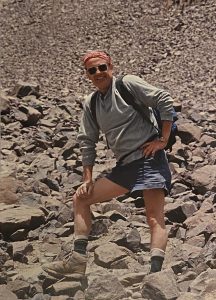
As a young lawyer, Tony Ruckel was just shy of his twenty-ninth birthday when, in the spring of 1969, he brought the nation’s first litigation under the 1964 Wilderness Act to the US District Court for Colorado. Ruckel and his plaintiffs—among whom included veterans from the US 10th Mountain Division, a wilderness guide, a local outfitter, the Town of Vail, Colorado Magazine, two local conservation organizations, and the Sierra Club—all believed the definition of wilderness set forth in the 1964 statute aptly described the acres adjacent a primitive area near Vail that the US Forest Service had proposed to sell for logging.
At the time, Ruckel had just moved back to Colorado, where earlier he had earned his undergraduate degree in Anthropology with an emphasis in Archeology due to his summer work at Pueblo Indian archeological sites in Mesa Verde National Park. Ruckel had returned to Colorado from Washington DC, where, in the 1960s, he marched in Civil Rights demonstrations, witnessed other historic events, and earned his J.D. from George Washington University Law School. It was in DC where Ruckel first joined the Sierra Club upon learning the Club was fighting against a government proposal to dam the Grand Canyon. By 1969, upon returning to Colorado, Ruckel represented the Sierra Club in court and in 1970 won his first major environmental law case, Parker v. United States (US District Court for Colorado, 1970). With that victory, Ruckel helped established an important legal precedent that ultimately enabled the designation and preservation of vast tracts of wilderness all across the United States.
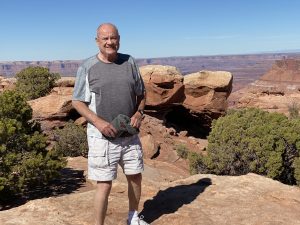
Soon after, Ruckel founded and became director of the Rocky Mountain Regional Office for the Sierra Club Legal Defense Fund (SCLDF), one of the nation’s first public interest environmental law organizations, now named Earthjustice. From 1972 to 1986, Ruckel worked as the Rocky Mountain Regional Director and staff attorney for SCLDF, with responsibilities for litigation on areas stretching from the desert Southwest through the Northern Plains, including several of the nation’s premier national parks. Ruckel’s legal campaigns with SCLDF included battles against coal-fired power plants and resisting placement of a nuclear waste repository near a national park that could have threatened the downstream drinking water of the Colorado River from Utah to southern California.
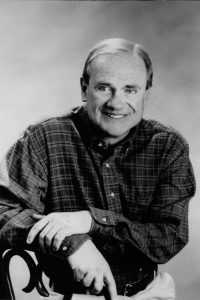
Later, from 1990-1993 and 1996-1998, Ruckel was elected to and served on the national Sierra Club’s board of directors, which included his terms as Secretary, Treasurer, and from 1992 to 1993 as President of the Sierra Club. Additionally, through his service on the Sierra Club’s Investment Advisory Committee, Ruckel helped pioneer for environmental non-profits their financial investment in non-extractive industries. Throughout all of these endeavors, Ruckel advocated passionately for the protection of public lands and wilderness areas, while also regularly exploring those lands. Ruckel became an avid long-distance runner and is a rare mountaineer who has summited all fifty-four of Colorado’s 14,000-foot peaks.
In his oral history, part of the renewed Sierra Club Oral History Project, Ruckel discusses all of the above and more, including his family history, the exciting early years of environmental law, as well as organizational tensions between the national Sierra Club, the Sierra Club Foundation, and SCLDF. Tony Ruckel and I recorded his fifteen-hour oral history over five interview sessions in September 2019, all at his home in Denver, Colorado. I am delighted to now share his 369-page transcript here, which includes photographs from some of Ruckel’s ascents of 14,000-foot summits throughout Colorado.
Tony Ruckel’s oral history is significant for those interested in environmental history and United States history, particularly for his work helping pioneer the field of environmental law and his legal efforts in the 1970s to halt the construction of massive fossil fuel and nuclear energy projects in the Southwest. Additionally, from 1963 through 1968, Ruckel witnessed and participated in several historic events in Washington DC, including marching to the Lincoln Memorial and standing less than 100 yards from Dr. Martin Luther King during his immortal “I Have a Dream” address; standing in line for hours on a wintry November night waiting to pass President Kennedy’s catafalque in the Capitol Rotunda; attending Supreme Court arguments presided over by Chief Justice Earl Warren; as well as seeing significant parts of northeast Washington burn upon Dr. King’s assassination in April 1968.
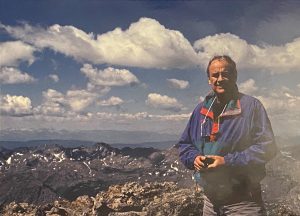
Ruckel’s oral history also makes substantive contributions to the Sierra Club Oral History Project. In the late 1960s, for instance, Ruckel played a formative role expanding the Sierra Club’s East Coast activities. But most importantly, as the founder and director of the Rocky Mountain Regional Office for SCLDF, Ruckel played a significant role establishing and shaping the early evolution of environmental law. His narration here on friendships and legal campaigns with other pioneers of environmental law—like David Sive, Jim Moorman, Phillip Berry, Michael McCloskey, Richard Leonard, Leland Selna, Rick Sutherland, Beatrice Laws, and others—complements and supplements several existing interviews in the Sierra Club Oral History Project. And with regard the Sierra Club’s contemporary campaigns to combat climate change by ending the extraction and use of fossil fuels, Ruckel’s narrative of his legal battles against the Kaiparowits and Intermountain power plants reveals the Sierra Club’s surprisingly deep roots to move “Beyond Coal” several decades before that campaign’s formal designation. Additionally, as a nationally elected leader on the Sierra Club’s board of directors in the 1990s, Ruckel oversaw challenges to the Club’s organizational finances and relationships vis a vis the Sierra Club Foundation and the Sierra Club Legal Defense Fund. During his time on the board of directors, Ruckel also made significant contributions to ways that Sierra Club finances are invested, accumulated, and presented publicly.
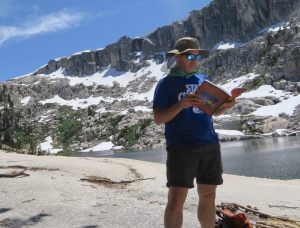
Lastly, Ruckel’s oral history compliments The Bancroft Library’s significant collections related to the Sierra Club. In preparation for his interview, I read carefully Ruckel’s own book about environmental law and his career in it: Voices for the Earth: An Inside Account of How Citizen Activists and Responsive Courts Preserved National Treasures Across the American West (Samizdat Creative 2014). Ruckel kindly donated a copy of his book to The Bancroft Library’s permanent collection [Call number TD171 .R83 2014]. Additionally, just prior to Ruckel’s interviews, it so happened The Bancroft Library made publicly accessible numerous additions to its already large collection of Sierra Club Legal Defense Fund Records (BANC MSS 71/296 c, Sierra Club Legal Defense Fund Records, The Bancroft Library, University of California, Berkeley). The existing collection already included agendas, minutes, reports, clippings, financial reports, dockets, new matter forms, notes, and subject files, mostly pertaining to SCLDF’s now-infamous Mineral King litigation. In late July 2019, in preparation for Ruckel’s oral history, I met with Lisa Monhoff, the project archivist who processed The Bancroft Library’s new additions to the SCLDF collection. Monhoff explained how the new records range from 1967 to 1995 and include environmental litigation cases from more than 30 states and the District of Columbia, as well as amicus briefs for numerous cases, including some for the Supreme Court of the United States.
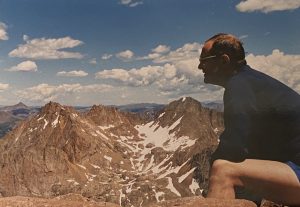
Ruckel then highlighted the following archival collections that complement sections from his own book on those topics, all of which he and I discussed during his oral history: Series 1: Administrative and Operational Files 1970-1991, Carton 3, folder 6: River of No Return Wilderness (Idaho) 1973-75, also covered in Voices for the Earth, pages 94-99; Series 3: Additions Received in 2009 1967-1995, Subseries 3.1: Environmental Litigation 1973-1995, Carton 9, folder 11: Colorado – Pitkin County 1991, also covered in Voices for the Earth, pages 116-121; Series 3: Additions Received in 2009 1967-1995, Subseries 3.1: Environmental Litigation 1973-1995, Carton 13, folders 14-15 – Circle Cliffs, Trans-Delta Oil and Gas 1973-1981, also covered in Voices for the Earth, pages 33-38. During his oral history, Ruckel and I discussed all of those topics and many more, including his work on cases related to managing the Grand Canyon (see Voices for the Earth, pages 49-65) and his efforts against the creation of a nuclear waste repository proposal next to Canyonlands National Park (see Voices for the Earth, pages 195-212).
Tony Ruckel’s gregarious nature and his storytelling made conducting his oral history a pleasure. The few days Ruckel and I shared together in September 2019 made me wish I could have joined him around the campfire out in some of the wilderness areas he helped preserve through his pioneering legal career. With the addition of Tony Ruckel’s oral history, the Sierra Club Oral History Project now includes accounts from well over one hundred volunteer leaders and staff members active in the Club for more than a century. Varying from only one hour to over thirty hours in length, these interviews document aspects of the Sierra Club’s diverse activities and concerns over the years, including protection of public lands and wilderness areas; attending to the “explore and enjoy” aspects of the Sierra Club’s mission through its robust outings program; safeguarding water and air quality; promoting sustainable energy and progressive climate policies; and working toward environmental justice. The full-text transcripts of all interviews in the Sierra Club Oral History Project, including this interview with Tony Ruckel, can be found online at the Oral History Center website.
— Roger Eardley-Pryor, PhD
H. Anthony (Tony) Ruckel, “H. Anthony (Tony) Ruckel: Sierra Club President 1992-1993, Pioneering Environmental Lawyer with Sierra Club Legal Defense Fund” conducted by Roger Eardley-Pryor in 2019, Oral History Center, The Bancroft Library, University of California, Berkeley, 2021.